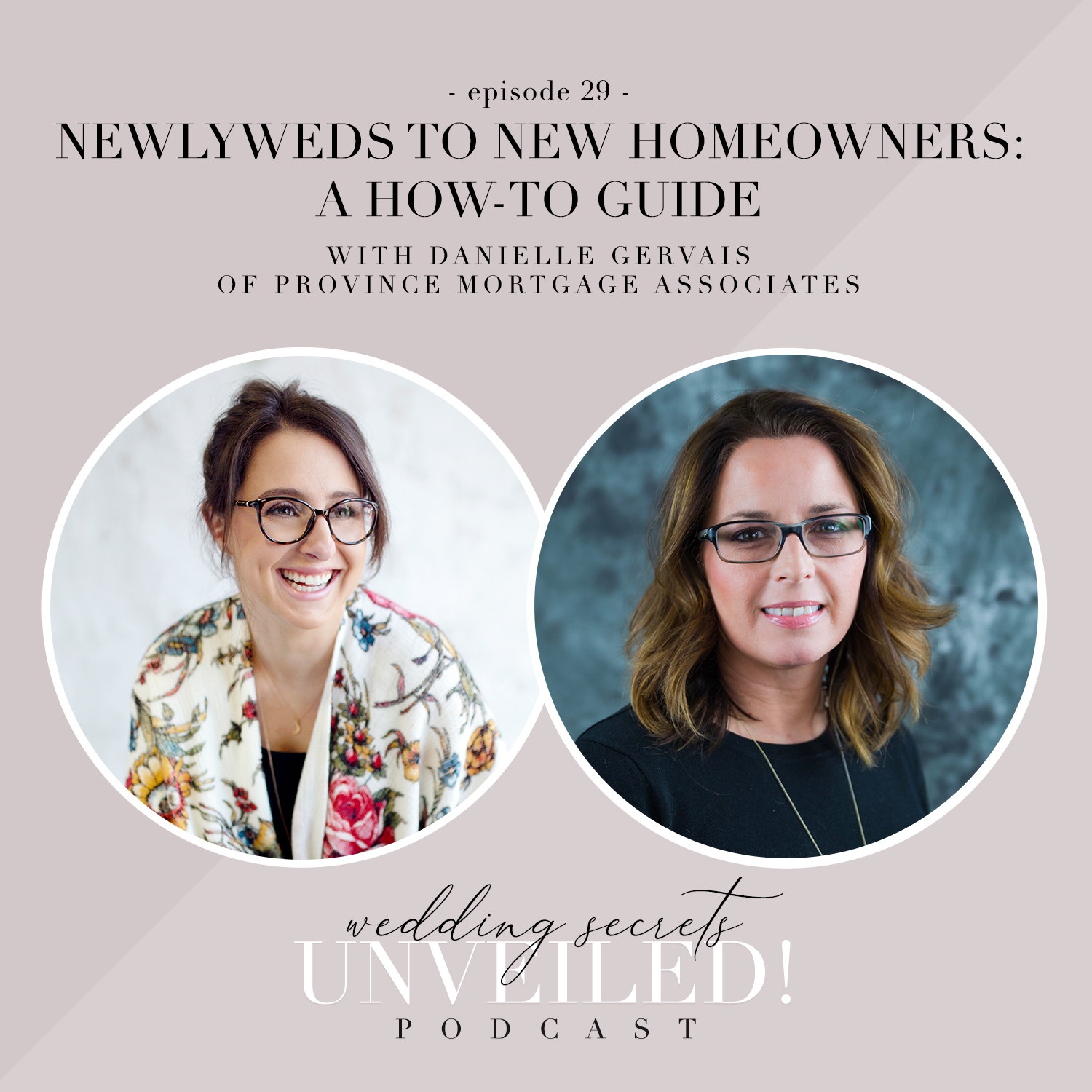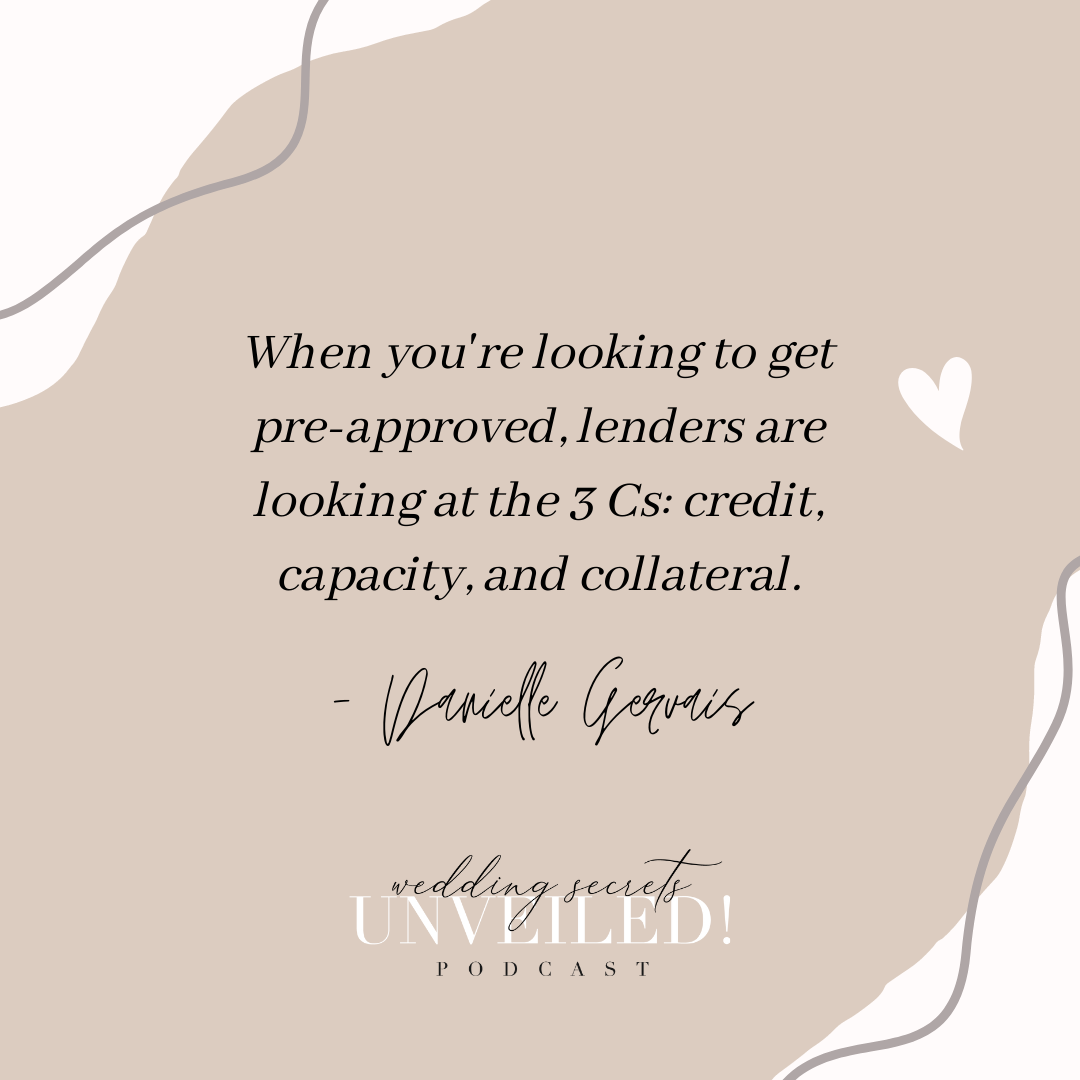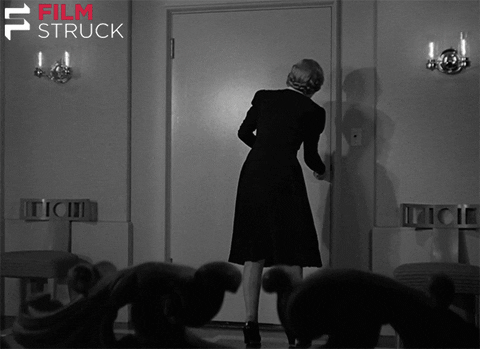We’re so excited to share the newest episode of the Wedding Secrets Unveiled! Podcast with you today. Many of our listeners are about to get married or were just married. And after you’re married, a lot of milestones start to happen. We totally get that! That’s why we’ve had financial planners and attorneys as guests previously. Today, we’re got something special for you focusing on a major milestone in adulthood: buying your first home. One of our dear friends, Danielle Gervais of Province Mortgage Associates is here to share about buying a home for the first time.

Meet Danielle.
I’m a senior mortgage advisor with Providence Mortgage Associates. I help people buy and refinance homes. Additionally, I work to help them accomplish financial goals like consolidating debt or getting cash for home improvements. I’ve been in the industry for 25 years and seen a lot, but I absolutely love the challenges of my business!
Let’s jump right in. What are the steps for someone who’s ready to buy their first home?
It’s so exciting! The first thing you should do is figure out your budget. So as far as a budget is concerned, there’s something called a “debt ratio” that’s used to calculate what you can afford with your mortgage. The reality is, though, that what you’re told you can afford and what you truly can afford in your real, day-to-day budget might be different. So I recommend sitting down and determining what you feel you can spend per month on a mortgage comfortably. Make sure to review your expenses, including things like eating out, childcare, and other entertainment expenses. I always tell my clients that I can tell them on paper what they can afford, but they’re the one that’s going to be making the payments.
If you feel like you can afford a specific amount and it’s maybe slightly over your current payment, consider working a budget for 6-8 months where that extra money goes into a savings account and you can really see what it’s like living with that expense each month. You’ll also get a nice little savings built up from that after 6 months! For example, maybe you’re renting for $1200 a month right now but the house you want is $1800. If you can cut expenses elsewhere and find that extra $600, put that money in the bank so it’s like you spent $1800 on your rent. Make sure it’s truly livable.

What’s next after the budget?
Next, you got to figure out what you’re going to do as far as a down payment. Different lending programs have different down payment requirements. You can use savings. You can use retirement funds or gifts (a note on that: gifts must be from family members – not random people that you don’t have a long standing relationship with). Then there’s always loans or assistance, too.
While you’re considering the down payment options, you also need to think about closing costs. There’s costs involved with buying a property. You can pay them outright or roll them into your mortgage loans, but that obviously will change the price. Just start to look at your options and figure out what you plan to use when you purchase your home.
Okay, so we’ve talked some about the money. Tell us about some things that can impact your approval for a mortgage. How can you help yourself?
There are three main things that your lenders will look at, we call them the 3 C’s. Those are credit, capacity, and collateral. Credit is the willingness to pay. This directly affects how your loan will be priced. Lenders will look at your credit score to determine your interest rate – and how that might change if you must get mortgage insurance. It will determine what your insurance would be, too. And some product qualifications are based entirely on credit scores. So it’s very important! Most products have a minimum of a 620 or 640 score, and that’s not often the best price. If you’re up the line in the 750+ range, you’ll get a better rate. And if you’re in the excellent range, you’ll get the premium interest rate and mortgage insurance if you have to get that, too. For lenders, we’ll be looking at your true FICO score.

Do you suggest that couples pull their scores before starting to look at properties?
Absolutely! You can actually go to creditreport.com and get an annual credit report from the reporting services. Take the time to review your report and ensure it’s all correct. The earlier you start checking that out, the better! You’ll be able to see what’s impacting your credit score and how to fix it. Many of the sites tell you how to fix your score, too. Remember that if you’re applying jointly for your new home, the lender will look at the lower of the two scores – so work hard to keep them both in great shape.

So the next “C” is capacity. What does that mean?
Capacity is your ability to pay, which basically means your income. There’s several factors that play into your income. Lenders will look at your gross monthly income and your debts. This determines that debt ratio I mentioned earlier. They’ll also look for recurring monthly payments that don’t show on your credit scores, like utilities and the future mortgage payment, so don’t be surprised when they ask for bank statements. Lenders will also be looking at your stability and reliability in this category too. They want to know that you follow through on what you owe.
You said the third “C” was collateral. What does that means?
This one is simple. Lenders will look at the property itself that you’re wanting to purchase. They’re going to look at the value of the property compared to similar homes in the area. They want to be sure that the home is in good shape. It’s rare that this causes the loan to be denied, but it happens. Sometimes there’s issues with the title or something that isn’t even in your control, but they’ll work with you to figure it out.
For the past several years, the housing industry has been so low. What can a buyer do to be a little bit more competitive right now in this crazy market that we’re in?
Yes, it is crazy. It has been insane for several years actually. When we say the market is low, we mean that the inventory of homes is low – not the pricing. There’s a high demand for homes right now and that drives up the price since inventory is so low. It can lead to a lot of frustration for buyers. The good news is that experts are expecting the industry to climb a bit in the next year! Anyway, this market means that you have to make your offers really stand out from the start because the seller is going to be sitting down with their real estate agent and deciding which offer to accept. And honestly, the highest offer isn’t always going to be the one that’s picked.

How does getting pre-approved help then?
The most important thing to do is to get pre-approved or completely approved before you search for a home. Right now, a pre-approval is so important. With the industry the way it is, a lot of realtors won’t even let you walk in the home without a pre-approval! Your realtor can help you get a pre-approval letter through a good company. After that, the next thing you can do is go through the underwriting process, which is more of an official approval.
This saves everyone a lot of time – and frankly, if you’re the seller, you’re going to choose that person because they’re ONE step away from being able to buy the home instead of several. The underwriter will be looking at your credit reports, the documents, all of that… not just saying you can afford something. The full approval is a much more detailed process and there’s benefits to that.
What can you tell us about working with lenders who are local – the good and the bad?
I think it’s like any job, people start to recognize you. Real estate agents will learn to recognize that you’re someone who does their job, picks up their phone, helps sort out problems. Or if you’re someone who doesn’t. Those agents know who they like to work with. Being local just makes it even easier to complete these transactions easily.
Earlier you mentioned that the highest offer isn’t always the best offer. Can you explain why that is?
There’s an unspoken hierarchy that real estate agents are aware of with their clients and products. Certain loan options are more strict that others. This plays out in a few ways. Sometimes this means more work for the seller – like having to fix more or complete more repairs. These loans all have different contingencies and requirements that can make the sale more complicated. Cash is still king – everyone loves that there’s no contingencies, appraisals, or anything like that. After cash, conventional loans are the best. Below that, you have FHA, VA and USDA loans which get more complicated. Sellers are going to look for the path of least resistance when choosing a winning bid. Additionally, you have to look at the needs of the buyer and seller. Maybe the seller needs more time to leave the property, or something. That all impacts who they select.
At the start of the episode, we talked about down payments, and you mentioned wedding gifts and funds. What should first time home buyers know about using that money to buy a home?
The thing about down payment funds is that they have to be sourced and seasons typically. That means that your money has to sit in the bank for at least 60 days. For couples that use wedding gift money, it can be a little more complicated. You’ll often have to show HOW you received that money and why. I’ve seen couples have to show engagement announcements and invitations to prove where the money came from. There are strict guidelines showing that the seller can’t be involved with the funds, which is why you wind up having to prove where money came from.
Let’s shift gears for a minute. If you’re getting married and you’re marrying the breadwinner of the household, how can listeners protect themselves and their properties if something should happen?
So, I am not a financial planner. But I would strongly suggest getting insurance: life insurance, disability insurance, whatever it is that ensures you’d keep your property. I know that this kind of thing always falls to the wayside as you plan, but things happen – and they happen fast. It’s better to be prepared and know you can afford your property if something happens.
We have an episode HERE from our financial planning expert. You can learn more about protecting yourself and your assets in that episode!
Moving on… what about some trends that you’re seeing a little bit in inventory right now?
With inventory being so tight and people losing out on bids regularly, we’re seeing many more family swaps happening. Parents sell their homes to their kids. If that’s a situation you’re looking at, call a lender first because there are ways to structure this transaction for everyone’s well-being. There are ramifications of gifts and these kinds of sales.
We’re also seeing more homeowners taking cash out refinancing to do home improvements. We’ve all been at home during the pandemic and people are realizing they need to make some changes. Lenders can help with those options, too.

Wrap-Up Question
What are some key points couples should be asking lenders to make sure that they are working with a professional that has experience?
Make sure they have a variety of products available. Confirm that they can help you find the right product and best interest rates.
Look for a high tech and high touch company. This process should be streamlined and easy to follow. A company who allows for this to be done online – all while making you feel taken care of and cared for – is important for the ease of homebuying.
Passion. I love what I do and watching families attain their goals with their dream homes. I’ve worked with families and couples who become clients for life. I think that’s so important when choosing a lender.
What We Discussed
The process of buying your first home (4:11)
The 3 C’s of lending (9:27)
Why you should work with local lenders in your area (29:40)
Using wedding gifts + funds for your new home (39:25)
Housing trends (40:28)
Wrap-Up Question: what to ask lenders (41:50)
Links Mentioned in the Episode
You can find Province Mortgage : Website | Instagram | Facebook | Call Danielle at 401-263-3551
You can subscribe to this podcast from wherever you’re listening so you never miss an episode. And, we would so appreciate it if you left a fabulous review for our show on Apple podcast! Even better, share it with a friend. It’s a great way to show your support and let us know what you think. Thank you so much for listening!